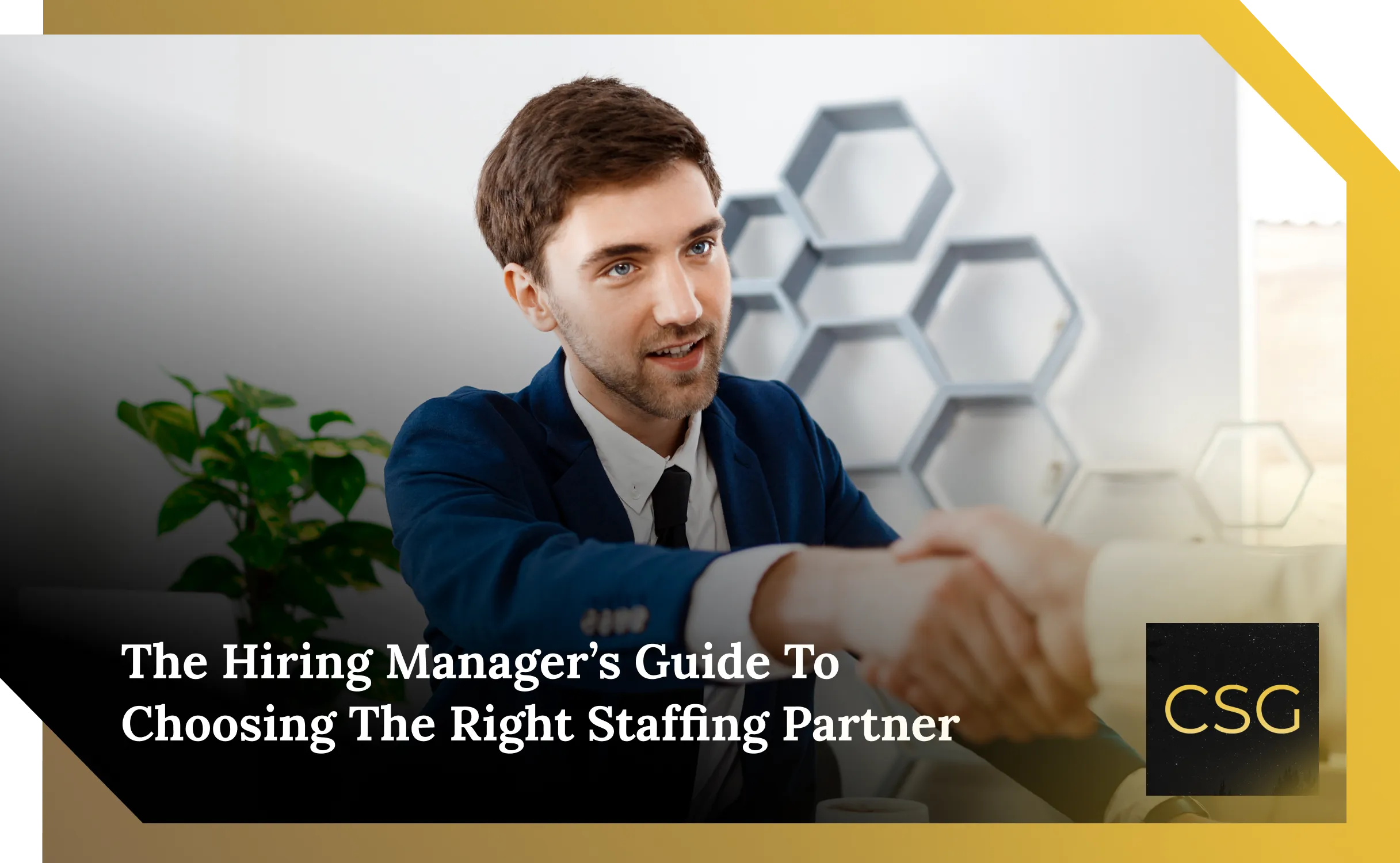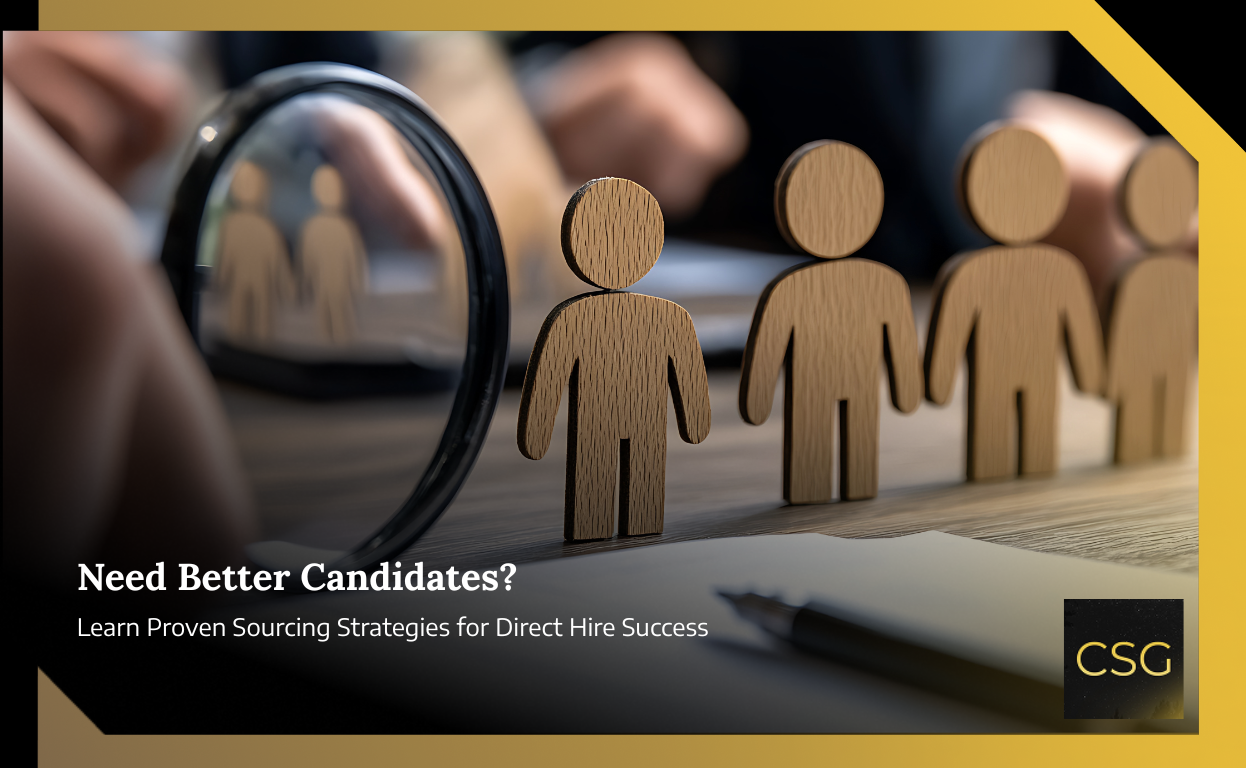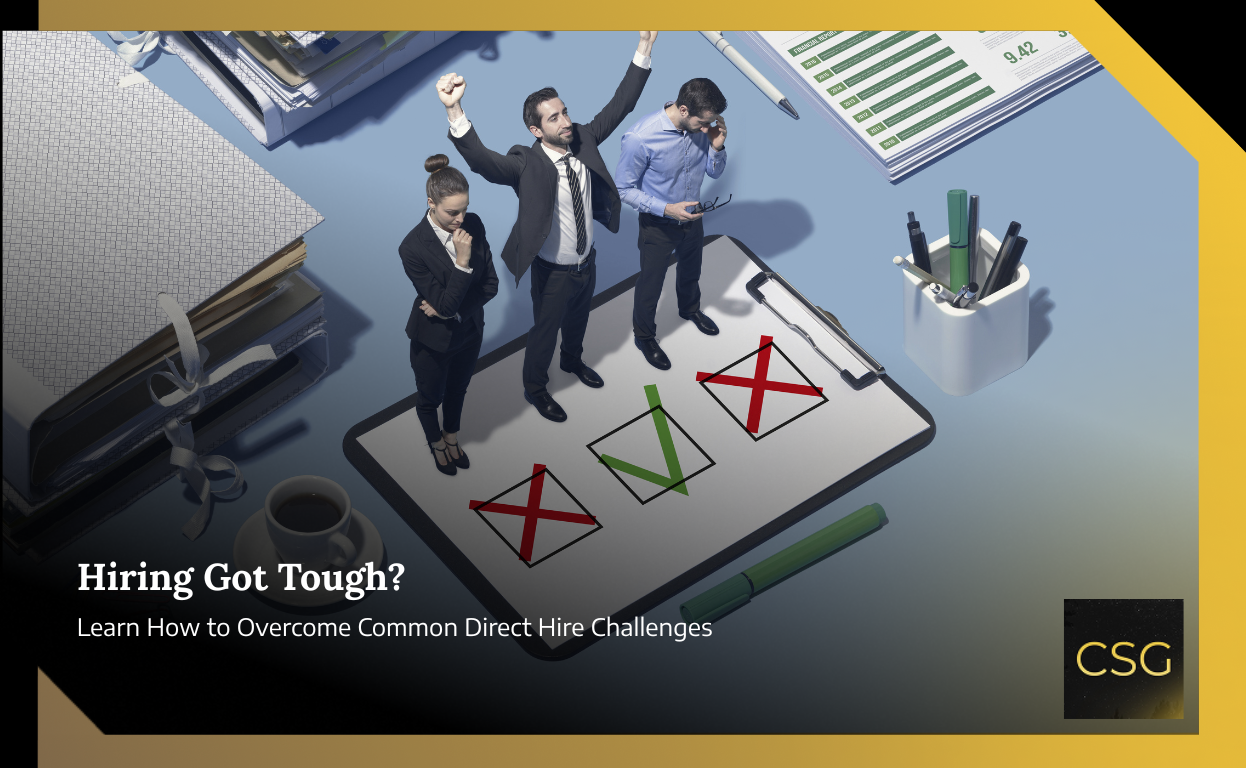Finding the right staffing partner can feel like navigating a maze and that’s exactly why a clear staffing partner checklist is essential. Between vague sales pitches, fluctuating fees, and differing levels of service, many hiring managers struggle to know what really matters. Yet, your staffing partner isn’t just a vendor—they’re a strategic extension of your hiring function. The right one can dramatically improve time-to-fill, reduce hiring risks, and unlock talent pools you can’t access alone.
In this guide, we’ll walk you through a comprehensive staffing partner checklist tailored specifically for U.S. hiring managers, combining practical insights, compliance considerations, and real-world examples to help you make the best decision.
Summary
- Choosing the right staffing partner is a strategic decision, not just a transactional one. The best partners offer industry expertise, robust sourcing strategies, rigorous screening, and compliance assurance, while providing transparency in communication, technology, and fee structures.
- Hiring managers should assess cultural fit, responsiveness, and long-term alignment, using a scorecard to compare agencies. Red flags include vague sourcing methods, overpromises, and poor communication.
- With trends like AI-driven screening, DEI-focused recruiting, and flexible workforce models reshaping the industry, staffing partners that act as true consultants not just vendors help companies improve time-to-fill, reduce risks, and access stronger talent pipelines.
Step 1: Get Internally Aligned Before You Search
Before reaching out to staffing agencies, get clear on your own needs:
- What roles are you trying to fill? High-volume? Niche-skilled?
- Is your need short-term, long-term, or temp-to-hire?
- Do you have internal bandwidth to manage the partnership?
Use this moment to define success metrics: reduced time-to-fill, improved candidate quality, or workforce flexibility. We recommend downloading a simple internal needs worksheet to align your team.
Step 2: Key Qualities to Look For in a Staffing Partner
Not all staffing partners are created equal. Here’s what to evaluate:
1. Industry Specialization
Choose a partner familiar with your sector—whether it’s healthcare, finance, logistics, or tech. According to the American Staffing Association, industry-specific agencies deliver 28% faster placements on average.
2. Candidate Sourcing Strategy
Ask where they find their candidates. Do they rely solely on job boards or actively cultivate talent pipelines? The best partners combine multiple channels including passive outreach, referrals, and tech-enabled sourcing.
3. Screening & Vetting Process
Beyond basic resumes, look for partners who:
- Conduct skill tests and behavioral interviews
- Assess cultural alignment
- Offer compliance-ready background checks
Step 3: Compliance and Risk Management
Especially in the U.S., labor regulations can be tricky. Your partner should be well-versed in:
- EEOC, FLSA, and ADA compliance
- IRS worker classification rules (W-2 vs. 1099)
- Workers’ compensation and liability insurance
Red Flag Alert: Agencies that don’t proactively discuss compliance could leave you exposed to audits or fines.
Step 4: Technology & Transparency
A modern staffing partner should offer visibility into:
- ATS or CRM compatibility
- Candidate pipeline updates
- Performance metrics like time-to-fill and submittal-to-hire ratios
Request access to a sample dashboard or report. Transparency isn’t optional—it’s the baseline for strategic partnership.
Step 5: Communication Style & Cultural Fit
Staffing relationships flourish with:
- Clear points of contact
- Proactive communication schedules (weekly updates, monthly reviews)
- Cultural alignment—do they understand your work environment and values?
You can learn a lot from early conversations. Are they asking thoughtful questions or just pushing candidates?
Step 6: Understanding Fee Structures & Guarantees
Don’t get tripped up by unclear pricing. Common models include:
- Contingency (you only pay when a hire is made)
- Retained (upfront investment for dedicated search)
- Temp-to-Hire (try before you buy)
Ask about refund policies, replacement guarantees, and hidden charges. A transparent pricing table can make this comparison easier.
Step 7: Smart Questions to Ask Your Potential Partner
Here are ten questions to ask before signing any agreement:
- What’s your average time-to-fill for roles like ours?
- How do you source passive candidates?
- What tools or platforms do you use for talent matching?
- Can I see a sample candidate profile?
- Do you provide diversity hiring support?
- How do you measure candidate quality?
- Who will manage our account?
- What does your onboarding process look like?
- Do you provide training or upskilling options?
- What happens if a candidate doesn’t work out?
Pro Tip: Create a scorecard to evaluate agencies based on these answers.
Step 8: Real-World Success Stories
Case Study 1: A fast-growing SaaS company slashed their time-to-fill by 40% after partnering with a tech-specialized staffing firm that offered a pre-vetted talent pool and AI-driven matching.
Case Study 2: A national logistics company scaled its seasonal workforce 3x using a staffing partner that provided remote onboarding and mobile scheduling tools.
These examples highlight how the right partner delivers both agility and strategic value.
Step 9: Red Flags to Watch Out For
Even a polished pitch can hide risks. Look out for:
- Vague answers about sourcing or screening
- Lack of verifiable references
- Overpromising timelines or candidate quality
- Poor communication during early discussions
If they can’t answer your questions clearly now, it won’t improve later.
Step 10: Use a Staffing Partner Evaluation Scorecard
Build a simple evaluation matrix with these columns:
- Industry expertise
- Speed and responsiveness
- Sourcing & screening quality
- Pricing & flexibility
- Cultural fit
Score each potential partner and choose based on total alignment—not just cost.
Bonus: 2025 Staffing Trends to Watch
- AI in candidate screening: Many partners now use AI to assess skills and match resumes.
- DE&I-focused recruiting: Expect more agencies to offer inclusive hiring strategies.
- Flexible workforces: Contract and fractional hires are growing, especially in marketing, tech, and ops.
FAQs
Q. What’s the difference between a staffing partner and a staffing agency?
A staffing partner takes a consultative, strategic approach, working closely with you to understand long-term hiring goals, culture, and workforce planning. An agency, by contrast, typically focuses on transactional placement—filling open roles quickly without the same level of alignment. With a partner, you gain a trusted advisor; with an agency, you get a vendor. The best choice depends on whether you need short-term coverage or a long-term hiring strategy.
Q. How can I tell if a staffing partner is a good fit?
Look for shared values, transparent communication, and a proven process tailored to your business. A strong partner will ask thoughtful questions, provide data-driven insights, and be proactive in problem-solving. They should feel like an extension of your HR team rather than a separate service provider. References and case studies are also strong indicators of fit.
Q. Can a staffing partner help with remote or hybrid roles?
Yes many staffing partners have robust systems for virtual vetting, remote onboarding, and compliance. This includes tools for video interviews, digital paperwork, and remote performance tracking. A good partner will also help you navigate legal and tax requirements across state lines. The key is ensuring they have the infrastructure to support distributed teams effectively.
Q. What are the biggest mistakes hiring managers make when choosing a staffing firm?
Common pitfalls include rushing into agreements, focusing only on cost, or failing to check references. Some managers also overlook cultural alignment, which can lead to mismatched hires. Others underestimate the importance of service quality and long-term partnership potential. Taking the time to vet thoroughly prevents costly mis-hires and strengthens hiring outcomes.
Conclusion
Stay ahead by choosing partners that adapt to these trends.
Choosing a staffing partner isn’t just a tactical decision—it’s a strategic one. The right partner amplifies your recruiting efforts, improves candidate quality, and protects your brand.
Ready to find your perfect match? Book a free staffing consultation with Constellation Search and discover how we’ve helped hundreds of businesses build better teams, faster.






